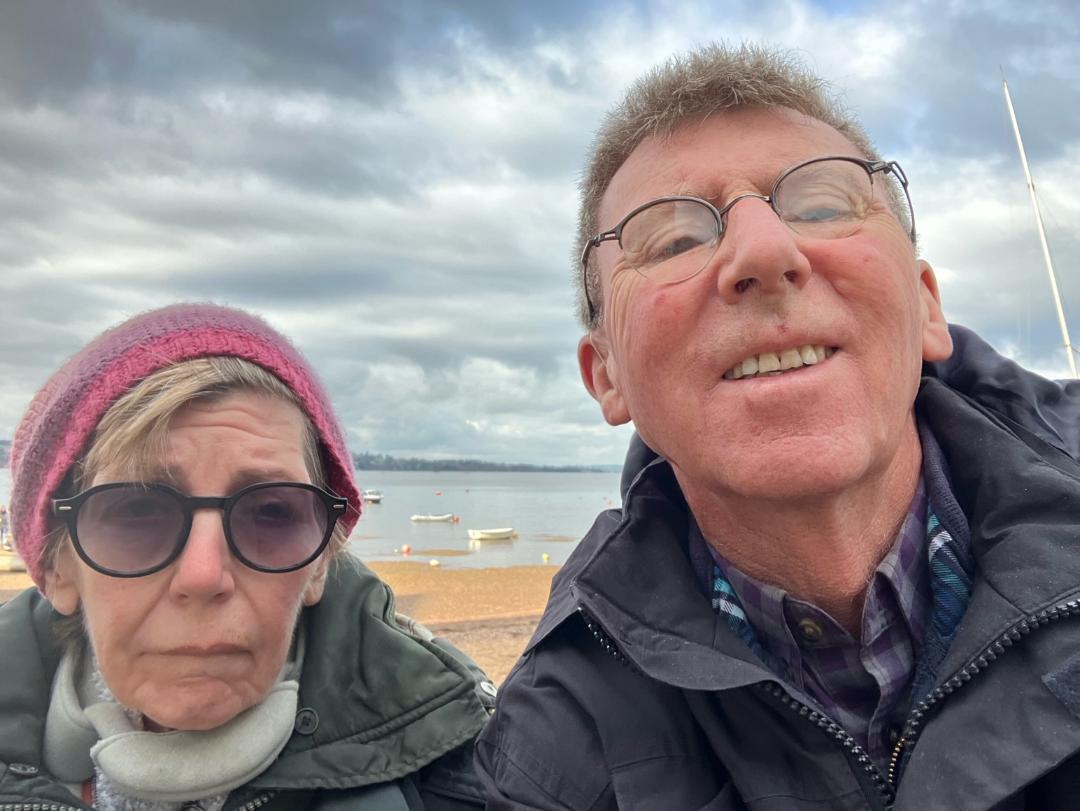Stephen Whitefield cares for his wife Susan who was diagnosed with PSP in 2020. He explains how Susan’s CHC application was rejected, leaving the couple to fund all aspects of her care themselves.
“The first inkling we had that something wasn’t right was when Susan’s speech started to deteriorate. Susan was a professor at University of Exeter and concerns had been raised by students and staff. She was referred to a neurologist and diagnosed with PSP in March 2020.
At first, she could still do a number of things, but over time they’ve gradually been eroded. She started with a walking stick before transitioning to a walker, and now she is in a wheelchair. Her movement is poor, she is incontinent, and her voice is very quiet now and increasingly she is unable to speak at all, so we communicate with thumbs-up and down.
We’ve tried to carry on life as normally as possible, but PSP brings with it a gradual decline across all dimensions. As soon as you have things in place, the condition moves on and you have to try to keep up with it. Around two years ago I realised I could no longer continue to care for Susan by myself.
Initially we had just one carer, but as Susan’s needs increased our carer put together a team of carers using her own contacts. We now have a regular team of carers who care for Susan. This arrangement continues to work really well for us. It’s literally been a lifesaver. All the
carers we have are wonderful and we are very grateful to them.
Six months ago, our local Parkinson’s nurse suggested we do a CHC assessment. She came to the house to do the initial assessment and said she was confident we would pass it. But we didn’t. This took us all by surprise, but it appears that we failed simply because we are managing the situation with the care that I have put in place for Susan. During the assessment I was asked about falls. Susan doesn’t fall because we make sure that doesn’t happen. In the eyes of CHC that means we don’t need a care package.

At the moment we are paying £4,000 a month for care. We can do this because I’m still working and we no longer go on holidays, go out for meals or spend any money on activities and interests. All the money we have now funds Susan’s care. The cost is significant, and it is our largest expense, but we have arrangements that are stable and meeting Susan’s needs. We need to focus on trying to enjoy the time we have left together. I appreciate we are fortunate that I’m able to continue earning and that we are able to do this.
Ultimately, I think we’re not eligible for CHC funding because we are coping, and we are doing it all ourselves. We are grateful for the support we do get from the Parkinson’s nurse, the occupational therapist and our local hospice, but for day-to-day care, that’s clearly on us to manage and fund.
My own experience of CHC and hearing about other people’s experience have shown me that CHC is not fit for purpose. The system is unfair, patchy and it forces people to play games to ensure they secure the funding and the care package. The whole system is broken.”


